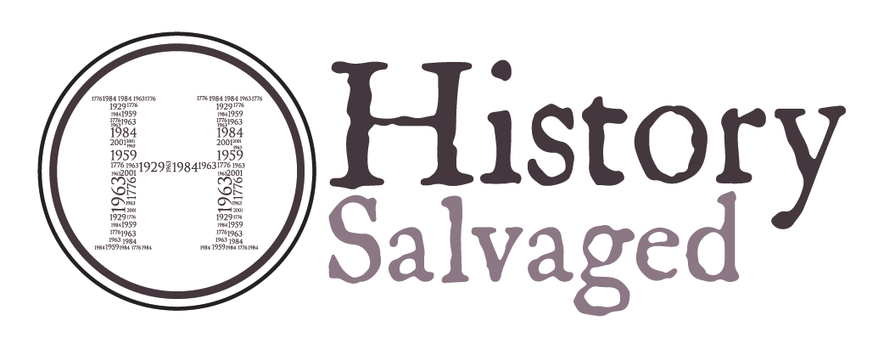Independence Hall Founding Fathers Signature Series - Rollerball
- HS Signature Series Rollerball (Fountain Pen available upon request) is a premium quality Rhodium and Black Titanium that features Original 1732 Construction Independence Hall Witness Wood®.
-
The Series is created using Witness Wood® from the only documented original construction wood removed from Independence Hall, acquired by History Salvaged along with documentation dating back to the 1898 restoration and renovation of the Birthplace of America, Independence Hall, Philadelphia, PA.
- Features a solid sterling silver Witness Wood® Jewel cap.
-
Engraved: Independence Hall - Philadelphia, PA OR we offer the option of having your favorite Signer of the Declaration of Independence or Founding Father's facsimile signature engraved (just put in the Notes when checking out which Founder you are interested in and we will confirm your choice via email).
- Made in the USA.
- Each pen is individually handcrafted and therefore may vary in look and feel.
We've created the Signers Rollerball at the request of several customers who trace their ancestry back to singers like John Witherspoon and Founding Fathers like Alexander Hamilton whose signature is engraved on the pen in the accompanying photo.
History Salvaged acquired ORIGINAL 1732 construction Witness Wood® from Independence Hall. This Witness Wood® includes pieces of the beams that supported the floor when both the Declaration of Independence and the Constitution were debated and signed. These Independence Hall Witness Wood® beams and railings had once felt the footsteps and touch of George Washington, Benjamin Franklin, Thomas Jefferson, and John Adams, among others.
Provenance - Independence Hall
Completed in 1735 as the Pennsylvania State House, it took two years to build Independence Hall home of the 1st Continental Congress and the Declaration of Independence and where the Constitution was debated and put to paper.
During the renovation of Independence Hall in 1897-98, 16 of the original beams holding up the floor on which the giants of the era debated the future of the 13 Colonies were replaced under the supervision of the project manager and superintendent of the Independence Hall, Samuel Reeves. Rather than discarding the beams, Reeves retained possession of the old timbers.
In 1912 Reeves sold the beams to John S. McQuade a builder and member of the Philadelphia City Council for the purposes of cutting them up and making “relics”, but McQuade stored the beams for 12 years and in 1924 sold them to two brothers, Walter and Clarence Deisroth owners of a paper box company in Philadelphia.
The Deisroth’s reduced some beams to 100,000+ slivers and sold them as souvenirs during the Sesquicentennial Exposition of 1926.
In 1956 the Deisroth’s company went into bankruptcy and at auction Mr. Henry Gouse a retired sales engineer and the Mid-Atlantic Tennis Champion of the 1940s bought the wood at auction. Along with what was left of the timbers thousands of chips and 20 gallons of sawdust, the byproduct of producing the 100,000+ slivers was included in the lot.
Grouse stored the beams in a barn on his property on the outskirts of Philadelphia where he made gavels out of some of the beams and presented them over the years to President Eisenhower, President Nixon, Winston Churchill, Charles de Gaulle, and other political leaders. Grouse also donated 4 of the remaining beams to Independence Hall and the National Park Service (now the operator of Independence Hall) as confirmed in the National Park Service letter acknowledging “the gift”.
In 1975 Gouse was in his 80’s and his ex-wife “reluctantly” sold the remaining woodpile to an artist and attorney from whose estate the History Salvaged was able to acquire this Witness Wood®.
Mrs. Grouse only sold the Witness Wood® because of the high cost of living and her struggling economic situation, she simply could no longer afford to keep the timbers and sold the Witness Wood® with the understanding that it would not be desecrated.
The new owners subsequently cut up much of the wood again into slivers, producing thousands of history cards and memorabilia that were sold during the Bicentennial in 1976 all over the country and in many major department stores.
The remnant wood has remained to dry out and deteriorating in storage since the 1970s until the History Salvaged recent acquisition.
---------------------
All pens are handcrafted by Master Pen Craftsman and are made in America.
Each is individually handmade and each varies in look and feel both in grain and shape.
Each History Salvaged pen is custom handcrafted to order with a typical delivery time of approximately 4-6 weeks.
Each pen in the numbered Limited Edition arrives in a cherry presentation box and includes a Certificate of Authenticity with custom tamper proof corresponding hologram, history, and provenance
